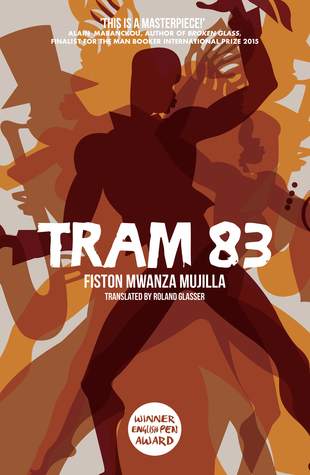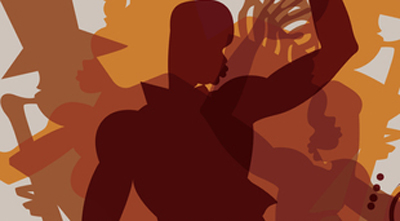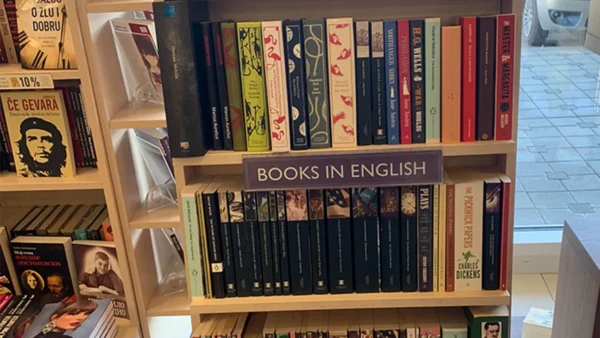It isn’t every day that you get to read a Congolese novel in English. In fact, the last time it happened, the country was still called Zaire. Tram 83 is an innovative literary novel that also deals with issues like neocolonialism and the scramble for Congolese resources.
It isn’t every day that you get to read a Congolese novel in English. In fact, the last time it happened, the country was still called Zaire. So I was excited to read Tram 83 by Fiston Mwanza Mujila, particularly when I heard that it not only was an innovative literary novel but also dealt with issues like neocolonialism and the scramble for Congolese resources.

Thankfully, it didn’t disappoint. This is a novel that declares its intentions from the very beginning, in fresh, direct language:
In the beginning was the stone, and the stone prompted ownership, and ownership a rush, and the rush brought an influx of men of diverse appearance who built railroads through the rock, forged a life of palm wine, and devised a system, a mixture of mining and trading.
The frenzy of exploitation runs through this novel, set in an unnamed mining town in an unnamed African country, shuttling between mines and nightclubs, with people getting chewed up and exploited just like the stone. There are also some memorable scenes at the Northern Station, described as:
an unfinished metal structure, gutted by artillery, train tracks, and locomotives that called to mind the railroad built by Stanley, cassava fields, cut-rate hotels, greasy spoons, bordellos, Pentecostal churches, bakeries, and noise engineered by men of all generations and nationalities combined.
The action moves fast and the language is pacy and energetic and poetic. There’s a lot of repetition, not only within passages but from one section to the next (the phrase “called to mind the railroad built by Stanley” recurs throughout the book when the station is mentioned, for example), and it builds a sense of coherence in a story that can often feel chaotic.
In the midst of all this is Lucien, an honest writer, and his old friend Requiem, who is more at home in this fast-moving world in which honesty has no place. It’s an interesting contrast and brings some of the conflict you’d expect. There’s also a fascinating cast of minor characters, and on top of that, the city and the “Tram 83” nightclub itself are so powerfully evoked that they feel like characters themselves.
I’d recommend this novel as something fresh, interesting, and thought-provoking, with some powerful themes. And I hope we don’t have to wait so long for the next work of Congolese literature to be translated into English.



